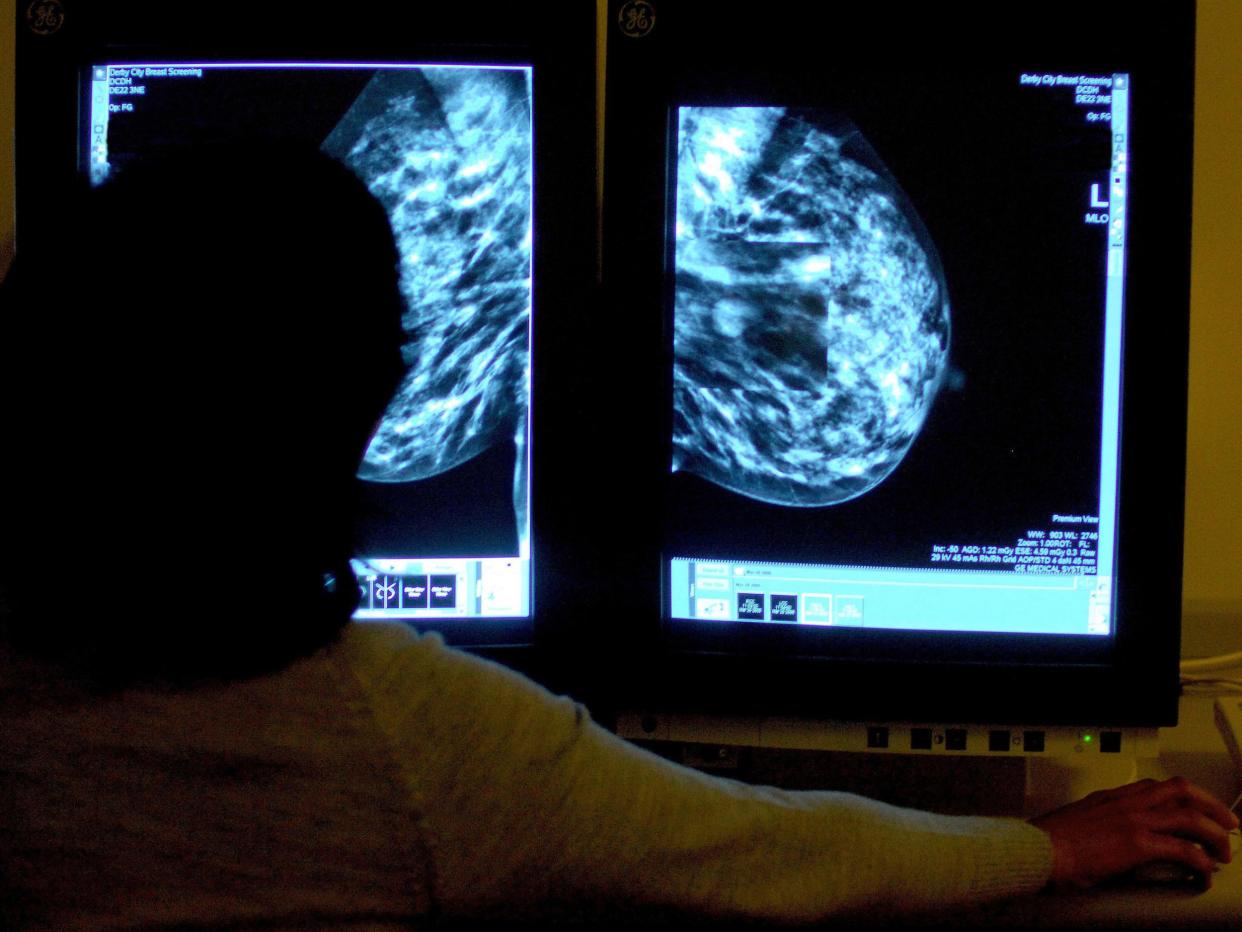Women with breast cancer denied life-changing reconstructive surgery to 'reduce NHS costs', investigation finds

NHS cost-cutting is denying hundreds of women treated for breast cancer each year access to “life-changing” breast reconstructions after surgery, an investigation has found.
Nearly a quarter of local NHS commissioning groups (CCGs) have policies which restrict reconstruction services without an underlying medical need, the charity Breast Cancer Now has revealed.
These policies include limiting the number of surgeries women were allowed, putting a timeframe on when they could have the surgery.
Some women were denied operations to ensure both breasts were symmetrical.
Baroness Delyth Morgan, chief executive of the charity, said it was “totally unacceptable” any patient was being denied reconstructive surgery – or being rushed into potentially life-changing decisions.
“Reconstructive surgery has profound benefits for those that choose it, helping give many their confidence and their lives back after breast cancer,” she said.
“These arbitrary restrictions in some areas of the country therefore represent a backward step in treatment and are absolutely not in the best interests of patients.
“The reasons for these restrictions remain unclear, but with the NHS facing unprecedented pressures, their introduction despite clear clinical advice begs the question whether they are being driven by a desire to reduce costs.”
Freedom of information requests to all 208 CCGs in England showed 47 (22.6 per cent) had established restrictive policies, while a further nine (4.3 per cent) had draft policies or informal restrictions in place.
Such policies can contravene clinical advice issued by NHS England’s Breast Cancer Clinical Expert Group in 2017, which states: “Patients make decisions at very different speeds so delayed reconstruction or further operative procedures to optimise symmetry should be available without time restrictions.”
Twenty of the 47 CCGs with restrictive policies were found to be in the West Midlands, while 12 were in London and six in the East of England.
Jo, 43, from Somerset, was diagnosed with breast cancer in May 2017 and had a lump removed in addition to six rounds of chemotherapy and radiation, but balancing surgery is being restricted in her region.
Now applying for funding to have her healthy breast reduced to achieve symmetry, Jo said: “When my surgeon told me about the restrictions in Somerset, I was gutted to hear that there was yet another hurdle to overcome – as if having breast cancer wasn’t enough.
“Going through such a traumatic experience changes who you are. Whilst I understand that the NHS isn’t an endless pot of money, this surgery could help me return to as normal a life as possible and it feels so unfair that I cannot access it because of where I live.”
Around a quarter of the 42,000 women diagnosed with breast cancer each year in England undergo a mastectomy – with about 2,400 of these opting to have immediate breast reconstruction. Another 1,100 have delayed reconstruction.
For many, the reconstruction can require multiple surgeries.
The charity is now launching new guidelines, alongside the Association of Breast Surgery (ABS) and the British Association of Plastic, Reconstructive and Aesthetic Surgeons (BAPRAS), urging CCGs to ensure all patients have access to the services they need, regardless of where they live.
Mark Sibbering, president of the ABS, said reconstructive surgery should not be considered cosmetic, and was part of a patient’s treatment.
“It should be available to all patients equitably”, he said.
Joe O’Donoghue, member of the BAPRAS, added that the surgery was “a vital part of breast cancer treatment, recognised … as beneficial to women’s psychological recovery and wellbeing”.
Additional reporting by PA

 Yahoo News
Yahoo News 
